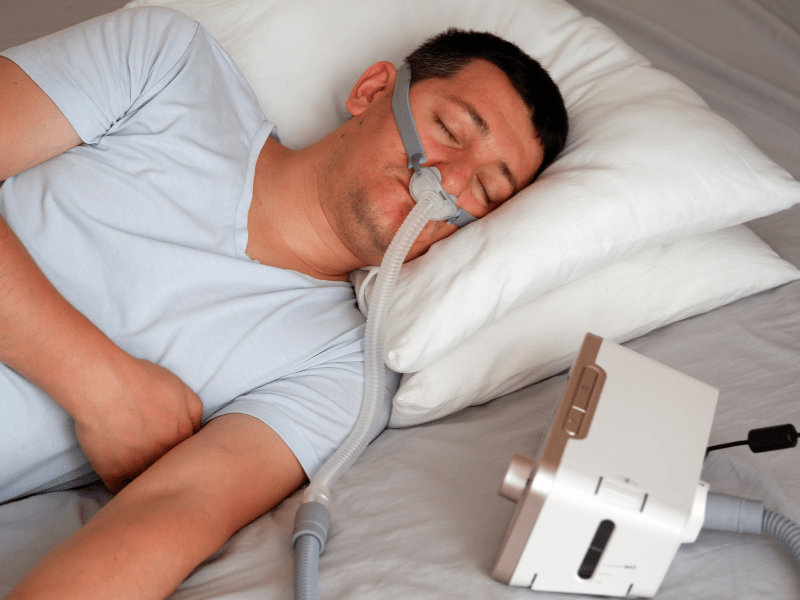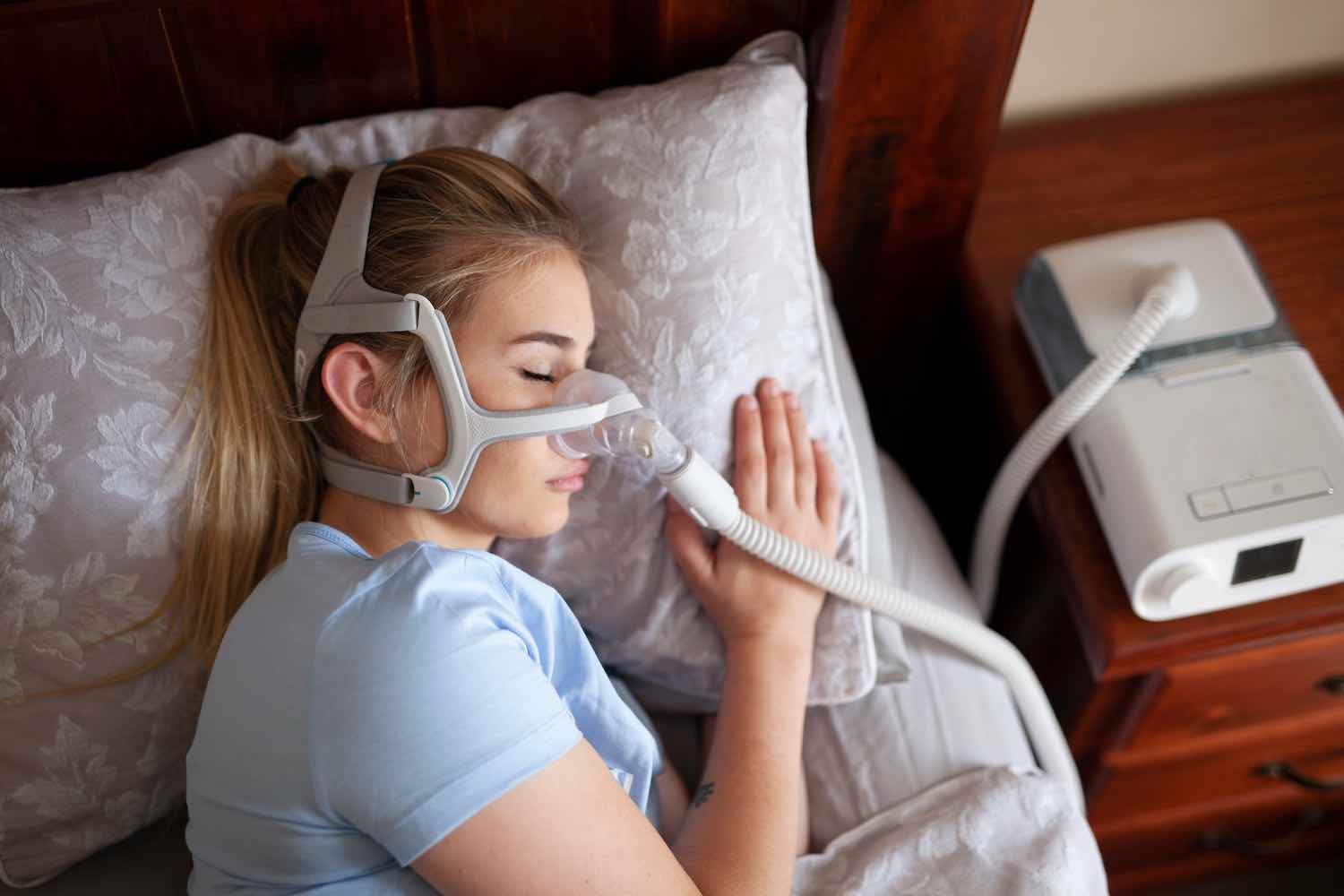Top Advantages of Picking BiPAP Rental Over Purchase
Top Advantages of Picking BiPAP Rental Over Purchase
Blog Article
Bipap vs. CPAP: Which Is the very best for Your Rest Disorder?
When navigating the intricacies of rest conditions, the choice between BiPAP and CPAP therapy is a vital consideration. While CPAP gives a consistent air movement ideal for obstructive rest apnea, BiPAP's double stress settings may improve convenience for those with even more detailed respiratory concerns.
Understanding Sleep Disorders
Sleep disorders include a variety of conditions that interrupt regular sleep patterns, influencing both the high quality and period of rest. These conditions can manifest in different kinds, including sleep problems, sleep apnea, narcolepsy, troubled leg syndrome, and parasomnias. Each condition offers special challenges, commonly leading to considerable daytime exhaustion, cognitive impairment, and emotional disruptions.
Insomnia is defined by trouble dropping or staying asleep, while sleep apnea includes repeated disturbances in breathing during rest, commonly leading to fragmented rest. Narcolepsy, on the other hand, is noted by too much daytime drowsiness and abrupt sleep assaults. Uneasy leg disorder creates unpleasant feelings in the legs, triggering an irrepressible impulse to move them, which can also hinder the capability to go to sleep.
The effect of rest problems expands past specific wellness, affecting total performance, relationships, and quality of life. Understanding the particular nature of each condition is critical for reliable medical diagnosis and therapy. As rest health and wellness ends up being significantly acknowledged as a crucial element of general wellness, attending to these conditions is vital for improving both sleep quality and daily performance.
Just How CPAP Functions
Constant Positive Airway Stress (CPAP) treatment is often employed as a primary therapy for obstructive rest apnea (OSA) The system of CPAP involves using an equipment that supplies a consistent stream of air through a mask worn throughout sleep. This airflow keeps favorable pressure in the airway, protecting against the collapse or blockage of the throat that can take place throughout rest.
When a person inhales, the CPAP device gives a continual flow of air, ensuring that the respiratory tract continues to be open - BiPAP Rental. This not only reduces the symptoms of OSA, such as snoring and interfered with sleep patterns, but additionally decreases the associated wellness risks, consisting of cardiovascular complications and daytime tiredness
The stress setups on a CPAP machine can be personalized to fulfill specific patient requirements, commonly determined through a sleep research study. On the whole, CPAP therapy has been shown to dramatically boost the top quality of rest and total wellness for individuals suffering from obstructive sleep apnea.
How BiPAP Functions
BiPAP, or Bilevel Favorable Respiratory Tract Pressure, is a specialized form of non-invasive ventilation that is especially helpful for individuals with problems such as intricate rest apnea or respiratory disorders. Unlike CPAP, which delivers a continuous stream of air at a single pressure, BiPAP provides two distinct pressure settings: a greater inspiratory stress for breathing and a lower expiratory pressure for exhalation. This dual-pressure technique enables easier breathing, minimizing the effort needed during exhalation.
The gadget operates with a mask fitted over the nose or mouth, connected to a maker that creates air stress. When the person breathes in, the maker provides the higher pressure to aid with air movement, making certain that the respiratory tract stays open. Upon exhalation, the maker automatically reduces the stress, making it extra comfy for the client to breathe out.

Secret Distinctions In Between BiPAP and CPAP

On the other hand, BiPAP (Bilevel Favorable Respiratory tract Pressure) offers two various pressure settings: one for inhalation and a reduced one for exhalation. This view website twin pressure system permits even more comfy breathing, particularly for patients who fight with exhaling versus a constant pressure. BiPAP is usually suggested for patients with complex rest apnea, chronic obstructive pulmonary illness (COPD), or those who need additional assistance throughout rest.
In addition, the intricacy of BiPAP devices typically leads to a higher price and needs extra cautious titration than CPAP. BiPAP Rental. Recognizing these crucial differences can help in recognizing which gadget may be preferable for particular rest disorders, setting the foundation for enlightened therapy decisions
Selecting the Right Treatment
Just how can one figure out one of the most appropriate treatment for handling sleep disorders? The choice between BiPAP and CPAP therapy mainly rests on the details features of the rest disorder, the patient's general health, and their convenience with the gadget. CPAP, which provides a continual stream of air, is frequently recommended for obstructive sleep apnea (OSA) It maintains an open respiratory tract throughout sleep, successfully stopping apneas and hypopneas.
On the other hand, BiPAP gives two degrees of pressure: one for breathing and a reduced one for exhalation. This dual pressure system is valuable for patients with complicated rest apnea or those that experience trouble exhaling against a continuous stress. Additionally, BiPAP is commonly recommended for individuals with respiratory system conditions, such as persistent obstructive pulmonary illness (COPD), where varying pressure settings can improve comfort and compliance.
Inevitably, a thorough analysis by a rest expert, consisting of a rest research study, can assist establish which therapy aligns best with the client's requirements. Elements such as comfort, ease of usage, and specific clinical problems must additionally be thought about to enhance therapy end results.
Verdict
In summary, both BiPAP and CPAP serve unique functions in the administration of rest disorders. CPAP works for obstructive rest apnea via constant air movement, while BiPAP provides twin stress settings that boost convenience for those with intricate sleep apnea or breathing pop over here issues. The selection between these therapies should be assisted by private demands and conditions, necessitating a comprehensive assessment by a sleep professional to ensure optimum treatment outcomes and boosted quality of rest.

Overall, CPAP treatment has actually been shown to substantially enhance the quality of rest and general health for people enduring from obstructive rest apnea.
BiPAP is usually recommended for individuals with intricate sleep apnea, chronic obstructive lung disease (COPD), or those who require extra support during rest.
CPAP is reliable for obstructive sleep apnea via regular air flow, while BiPAP provides dual pressure setups that improve convenience for those with intricate rest apnea or breathing problems.
Report this page